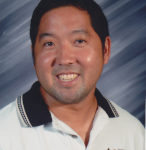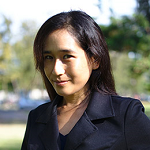Session Description
On June 22, 2018, Governor David Ige signed House Bill 2607 into law which provides the Hawaii Department of Education (HIDOE) $500,000 to invest in a K-12 computer science curriculum. With these funds, the HIDOE hopes to prepare students for a future where computer skills will be necessary for any career they choose. It’s an investment not only for our future leaders but for our state.
Fast-forward to today, while that vision remains unchanged, many elementary schools and teachers are not ready to integrate computer science (CS) into the classroom. The decision to have all schools deliver a computer science curriculum by the year 2024-2025 school year means teachers will need to find the time to research and learn these skills independently with little or no support.
This presentation offers a 5-module course to help elementary school teachers understand computer science, particularly algorithms and programming, by introducing Scratch coding. The design of this course will give teachers the confidence and skills to teach and further develop a computer science curriculum by experiencing the lessons, instructions, and activities through the eyes of their potential students.
Presenter(s)
 Cleve Hamasaki
Cleve Hamasaki
University of Hawaii, Honolulu
Currently enrolled at the University of Hawaii Masters in Education Learning Technology and Design program. I am the technology coordinator/technology coach at Aiea Intermediate School. My role is to support the entire school in technology-related issues. I am also responsible for helping to enhance pedagogy through emerging technologies.

 Tanya Spencer
Tanya Spencer Dennis Gearhart
Dennis Gearhart Lee Taylor
Lee Taylor Allyson Ota
Allyson Ota Ashley Ahn
Ashley Ahn Tyler Lum
Tyler Lum Chelby Onaga
Chelby Onaga Johnny Zhou
Johnny Zhou Sasha Mohd Sivan
Sasha Mohd Sivan